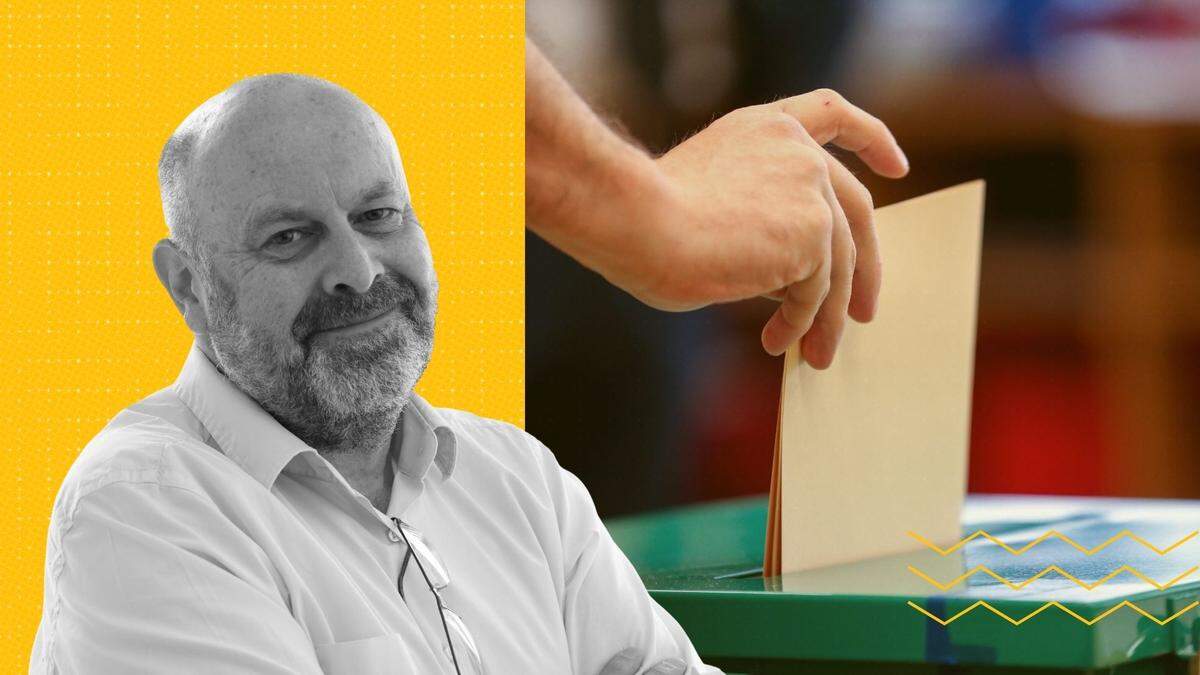In June 2016, just days after his 80th birthday, my father decided he was not going to vote in the UK referendum on remaining in the European Union. A political scientist who had spent much of his working life visiting Germany, Dad had become something of a euro-sceptic, disillusioned with the politicisation of the European project that had initially been a purely economic union.
But he recognised the Brexit referendum for what it was, a reckless gamble by then-Prime Minister David Cameron to outmanoeuvre the right-wing of his own party and cut off the growing popularity of Nigel Farage’s Ukip.
Cameron’s gamble came back to bite him. He resigned the day after 52% of the electorate voted in favour of leaving the EU.
No such fate befell Luxembourg Prime Minister Xavier Bettel (DP) a year earlier, when his government’s proposals on three questions – to grant foreigners voting rights in general elections, to lower the voting age to 16, and to limit cabinet minister terms to ten years – were all soundly defeated by much larger margins than the Brexit vote.
Indeed, Bettel managed to retain his role as head of government – in the same coalition with the LSAP and Greens – after the subsequent 2018 elections. The Luxembourg electorate seemed to have moved on from the 2015 referendum and voting did not reflect great dissatisfaction with the coalition parties, nor a significant increase in support for those opposition parties that had supported a the “no” vote in the referendum.
Just like the UK’s relationship with the EU since the Brexit vote, the topic of foreigners’ voting rights is one that raises its head again and again in Luxembourg
But, just like the UK’s relationship with the EU since the Brexit vote, the topic of foreigners’ voting rights is one that raises its head again and again in Luxembourg. In the lead up to the tenth anniversary of the referendum, foreigners’ rights group Asti published a poll, conducted by Ilres, that suggested a change of heart among the Luxembourg electorate, with 58% supporting the extension of voting rights.
Some voices are now claiming that the latest poll figures are evidence that a fresh referendum should be called. However, the government is quite rightly wary of asking the electorate to go to the ballot box again, especially so soon after the 12-month period from June 2023 to June 2024 when it voted in local, national and European elections.
Also, less than two years into its mandate, Luc Frieden’s coalition faces a swathe of criticism over its lack of engagement with social partners on topics such as the pension reform and extending shop opening hours. It is widely recognised that referendums can be used by the electorate as a sort of mid-term poll on an incumbent government’s performance, and that is not something the prime minister is willing to risk right now.
Indeed, while referendums may seem like a good idea that allow voters to have more direct input in the democratic process, they can be hijacked by nefarious forces, as was the case when Moldova was asked to vote on its potential EU membership last year, or, like Brexit, leave a country so divided on an issue that it takes years to recover.
And they can also be used by governments to push onto the electorate decisions that they may be too cowardly to take themselves, for fear of the consequences at the next election.
Ten years ago, Michael Marsh, a political scientist at Trinity College Dublin was asked by The New York Times if he thought referendums were a good idea. “The simple answer is almost never,” he answered. “I’ve watched many of these in Ireland, and they really range from the pointless to the dangerous.”
Referendum results should be respected and the questions they raised should not be put to the electorate again for another generation, at least
Nevertheless, referendum results should be respected and the questions they raised should not be put to the electorate again for another generation at least. Which is why they should be restricted in use for only the most fundamental questions that may affect a nation’s constitution, for example.
There wasn’t a real clamour among the majority of British people to leave the EU ten years ago. David Cameron had already negotiated better conditions for the UK’s membership, including an exemption from “ever closer union” to be written into the treaties. But for his own political interests, he chose to go to the nation.
Similarly, there were no mass protest movements by foreigners in Luxembourg demanding to vote in parliamentary elections. The Grand Duchy was still attracting expat talent, but their main concerns were housing and an international education for their kids rather than democratic rights.
Maybe in a generation, society will have moved on significantly to ask the question again. I recall, as an 11-year-old, listening with pride to my father being interviewed on BBC Manchester about the first UK referendum on membership of what was then called the European Economic Community.
We should be wary of allowing the lunatic fringe to claim they have a legitimate voice by indulging in any more pointless or dangerous referendums than absolutely necessary
The 50th anniversary of that vote on 5 June 1975 has just passed seemingly unnoticed by the mainstream media. Remain won 67% of the vote and The Sun even came out in support of membership, describing the referendum as being “a battle between the sane, sensible, moderate majority [and] lunatic fringe extremists”.
We should be wary of allowing the lunatic fringe to claim they have a legitimate voice by indulging in any more pointless or dangerous referendums than absolutely necessary.
